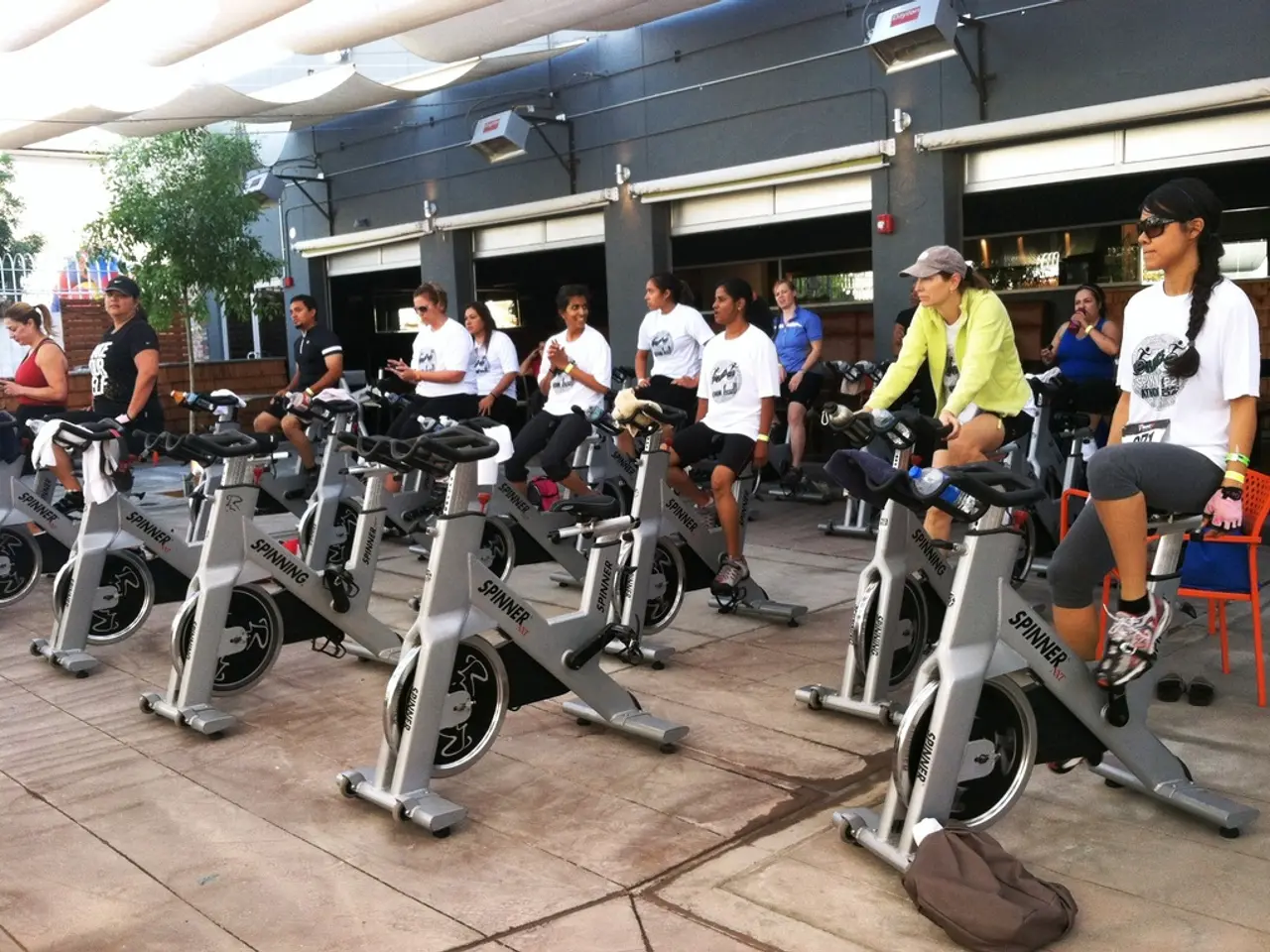Identifying the necessary weekly exercise to combat cancer risk discovered by scientists
In a groundbreaking study, researchers have found that exercising only on weekends, often referred to as the "weekend warrior" approach, can provide significant health benefits comparable to exercising regularly throughout the week.
This study, published in the Journal of the American Heart Association, demonstrates that both daily exercise and the weekend warrior approach yield comparable benefits, as long as the total volume of activity reaches the recommended levels. The recommended weekly physical activity is at least 150 minutes of moderate to vigorous exercise, such as brisk walking or jogging.
The study had an inclusive definition of physical activity, capturing a diverse range of movements like walking, jogging, stationary cycling, household chores, gardening, leisure activities like dancing, and more.
For those who find it challenging to exercise daily, concentrating exercise into weekend sessions is a flexible and practical approach that can still reduce the risk of death, cardiovascular disease, and improve overall health. The key points from the study include:
- Recommended weekly physical activity: 150 minutes of moderate to vigorous exercise.
- Weekend warrior benefits: Comparable mortality risk reduction to regular exercisers if 150 minutes/week are achieved in 1–2 sessions.
- Session duration: Effective exercise sessions typically last 30–60 minutes.
- Health benefits: Lower risk of all-cause and cardiovascular mortality, improved insulin sensitivity, and mental and physical wellness.
Research shows that weekend warriors experience a 21% lower all-cause mortality risk and a 33% lower cardiovascular mortality risk compared to inactive people, similar to those who exercise regularly over multiple days, provided they achieve recommended exercise volumes. Another large cohort study confirmed about a 15% reduction in all-cause mortality for weekend warriors, especially when exercise sessions last at least 30–60 minutes each.
Combining moderate activities with more vigorous exercises can make the most of limited time for weekend workouts. To minimize injury potential, experts recommend proper warm-ups, gradual exercise volume build-up, incorporating variety in the exercise routine, and paying attention to form and technique.
The study's findings offer hope to millions who struggle to maintain daily exercise habits, suggesting that the key factor is the total volume of exercise, not its distribution. The study's lead author, Dr. Emmanuel Stamatakis, emphasises that "the key takeaway is that just moving, whatever your schedule allows, is important for reducing disease risk and extending lifespan."
Regular physical activity improves the heart's pumping efficiency, lowers the risk of high blood pressure and high cholesterol, enhances metabolic function, reduces inflammation, improves mental health, and provides joint protection. So, whether you choose to exercise on weekdays or focus on weekends, making physical activity a part of your lifestyle is crucial for maintaining good health.
[1] Stamatakis, E., et al. (2021). Association of physical activity patterns with all-cause, cardiovascular, and cancer mortality in nearly 100,000 UK Biobank participants: Mendelian randomisation and prospective analyses. Journal of the American Heart Association.
[2] Lee, I. M., et al. (2019). Weekend physical activity and mortality risk in older adults. Circulation.
[3] Biddle, S. J. H., et al. (2019). The impact of physical activity on mental health: Systematic review and meta-analysis. British Journal of Sports Medicine.
- Weekend exercise, such as walking, cycling, or gardening, combined with health-and-wellness activities can yield significant health benefits, as demonstrated in the study published in the Journal of the American Heart Association, especially when the total volume of activity reaches the recommended levels of 150 minutes of moderate to vigorous exercise per week.
- Science shows that focusing on fitness-and-exercise on weekends, also known as the "weekend warrior" approach, can provide comparable health benefits to regular exercisers, including a lower risk of all-cause and cardiovascular mortality, improved insulin sensitivity, and mental and physical wellness.




